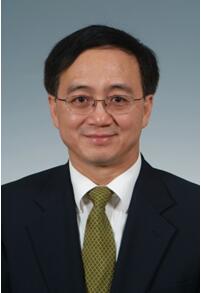

Professor and Director
Beijing Institute of Functional Neurosurgery
Department of Functional Neurosurgery XuanWu Hospital
Capital Medical University
West Essence Clinic
Educations and Professional Employment History
1979.9.-1984.7. MD, Beijing University Medical School,Beijing
1984.7.-1986.9. Resident, Dept. of Neurosurgery, First Affiliated Hospital of Shanxi Medical University, China
1986.9.-1991.7. PhD (Neurophysiology), Shanxi Medical University
1991.7.-1994.7. Senior Resident, Dept. of Neurosurgery, First Affiliated Hospital of Shanxi Medical University,China
1994.7.-1996.1. Fellow, Dept. of Neurosurgery, Johns Hopkins Hospital, Baltimore
1996.2.-1998.5. Specialist & Research Associate, Dept. of Neurosurgery, Loma Linda University Medical Center, California
1998.5.- Now Professor & Chairman, Beijing Institute of Functional Neurosurgery, Xuan Wu Hospital, Capital University of Medical Sciences, Beijing.
Prof. Li is specialized in surgical therapies for movement disorders such as Parkinson’s disease and essential tremor, epilepsy, chronic pain, cranial nerve diseases, cerebral palsy and psychosis.
Three representative publications:
Research Interests:
(1) Mechanism exploring and surgical treatment of movement disorders and psychological diseases
Beijing institute of functional neurosurgery
is one of the first institutes in China specialized in surgery for Parkinson’s
Disease including the first case of nucleus ablation and deep brain stimulation (DBS).
In recent years, the clinical spectrum has been greatly broadened to essential
tremor, dystonia and psychological disorders such as Tourette Syndrome, obsessive-compulsive disorder and so on. At the same time, prof.
Li and his team have also explored the mechanism of Parkinson’s disease,
cooperating with other great scientific research institutes in China.
(2) Diagnosis and treatment of drug-resistant epilepsy
This direction is focused at drug-resistant epilepsy, including diagnostic and therapeutic methods. Our epilepsy groups skillfully perform intracranial electrode implantation and electrical cortical stimulation in order to localize epileptogenic zone and map the functional domination of brain. In recent years , vagus nerve stimulation and transcranial magnetic stimulation have also been developed for patients who have contraindication for craniotomy.
(3) surgical therapy for chronic pain
This direction is to develop surgical methods to treat chronic
and intractable pain, which including. dorsal
root entry zonectomy, spinal cord stimulation and
peripheral nerve stimulation. Endoscopic
spine surgery has recently been applied to relieve the symptoms of lumbar
intervertebral disc herniation.
Awards and Honors:
(1) Molecular Genetics research in Parkinson’s Disease. First Prize awarded by Chinese Medical Association, 2002-12-29
(2) Molecular Genetics research in Parkinson’s Disease. First Prize awarded by Ministry of Education, 2003-1-1
Publications: